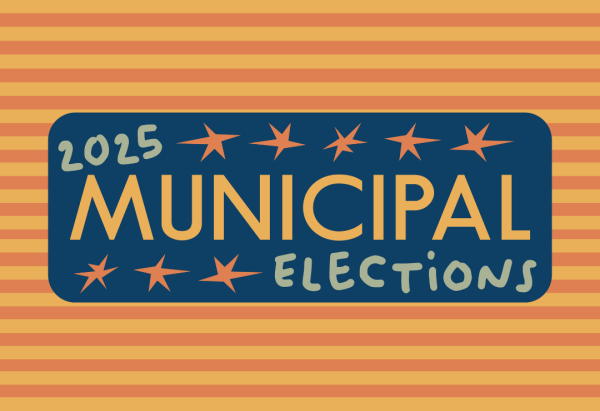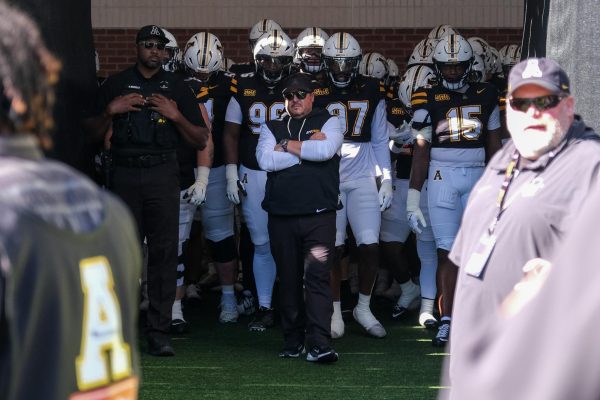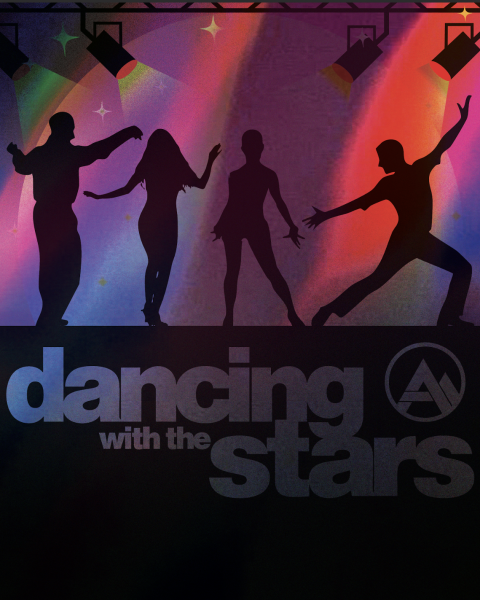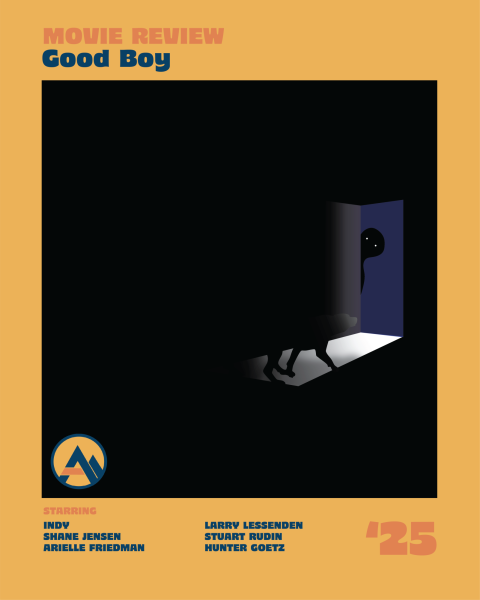OPINION: Eye-for-an-eye social justice hurts innocent people
September 12, 2019
Many people, be it in person or on LinkedIn, like to describe themselves as” social justice advocates,” because it sounds good to stand up for something bigger than themselves.
App State demonstrates a dedication to the concept of social justice. The University Sustainability Office has an entire web page dedicated to social justice, as does University Housing. Housing goes a step further with the social justice advocate position on Hall Councils.
The phrase “social justice” sounds inherently wonderful, but what does it mean? Casually, some refer to social justice as a way to remedy wrongs committed against marginalized groups, using equitable policies to achieve equality, such as reparations for slavery. Is there something wrong with wanting justice, particularly on a large scale?
Social justice operates under the best intentions but relies on flawed logical and philosophical arguments that conflict with the most core principles of our country.
In particular, the group-oriented nature of social justice is where the concept falls apart; justice cannot be generalized at the group level, as justice is tied to the notion of individualism. For example, when asked to define justice, many people say justice is about getting what you deserve — emphasis on the “you.”
Historical injustices vary greatly within oppressed groups. For example, if someone’s ancestors were marginalized in 1619, looking at the numbers, the injustices they have faced are different than someone whose family was marginalized in 1719.
Additionally, differences exist between forms of marginalization within groups. For example, during the Jim Crow era, black people faced different levels of oppression based on their surroundings. Consider how different Alabama was from Maryland in the 1960s.
Attempts to say all members of marginalized communities have the same experiences ignores the reality that individuals, by definition, have unique points of view. Oversimplification does not speak to every individual’s treatment within that group. In many cases, it is possible their treatment could be worse than the average group member’s.
Let’s take the concept of social justice a step further. If groups, collectively, are understood to deserve retribution for past harm, then the opposite must be true, as some groups must be held collectively accountable.
Consider the following example: say my great-great-grandfather murdered someone else’s great-great-grandfather. The impact of losing a relative can be devastating and deeply consequential — this is undeniable.
What if, flying back to the present, a portion of my paycheck went to the descendants of the victim; would you consider that to be truly just? After all, a group I am part of, my family, is responsible for a grave atrocity with generational effects.
As it is unfair for a victim’s family to suffer, it is equally unfair to hold people accountable for actions they did not commit. The basic tenets of our nation are clear: life, liberty and the pursuit of happiness. Are individuals truly free when their ancestor’s past actions constrain their current or future opportunities?
Similarly, people from marginalized groups may also experience limits based their ancestors identities, which is also a grave injustice, as the effects reverberate today. However, the solutions lie in individual justice, not out-of-date applications of injustice against innocent individuals.
The classic eye-for-an-eye approach to social justice is also irrational. The only way to make up for an act would be the act itself. Do we want a society that swaps historical injustices?
Historic injustices are unique because they are impossible to define in monetary terms. What is the price tag of marginalization and mistreatment on the mind? It is literally priceless — no attempt at compensation will ever fully equate the horrors committed.
Individual justice is a worthy cause to pursue. It is the beating heart of our country, and any injustice committed is an abomination that needs to be fixed.
Group justice, however, is something different. A backward concept that relies on radical oversimplification to hold individuals accountable for acts they did not commit. It changes the direction of the country from looking forward to gazing at the horrors of the past that no one wishes to relive.













Yellow • Oct 23, 2023 at 4:18 am
White Priviledge – Black Priviledge. Social Justice is a game played by the masses for the masses (I call it the blind leading the blind) while the “families” who actually rule the world today, ruled it yesterday and will rule it tomorrow. Ain’t no social justice going to change THAT priviledge.
L • Sep 21, 2021 at 4:58 pm
Regardless of whether you agree with the article, to be upset simply because it was written seems unreasonable. Freedom of speech is important. to label something as racist is a serious accusation, and should not be done just because you don’t agree with it because you think it is conservative. both opposition and support of this article seem to be drastically polarized. be kind. whoever wrote this is a human, even if you disagree with him.
John McAdams • Oct 1, 2019 at 6:15 pm
What a bunch of yahoos attacking this piece as “white supremacy.” So in the world of political correctness, treating people equally is “white supremacy.” Your college education (and probably high school before that) has failed you.
JD • Oct 1, 2019 at 9:06 am
This is a well-written op-ed that takes an objective, rational approach to identifying and explaining the fundamental flaws of “social justice”. Ironically, the offended people lashing out in the comments only further prove the author’s point that this mindset is subjective, irrational, regressive, and it refuses to accept the irrefutable confines of reality. It really ages the people behind the screen: clearly young students enrolled at AppState who have little-to-no experience with the real world. Connor, I’m glad to see at least someone there’s willing to challenge the status quo and explore dissenting views. Keep up the good work.
P.S. – newsflash kids: drinking the Kool-Aid might taste good, but it’s still fake, re-processed crap that’s going to hurt you in the long run.
1) Just because it’s in a textbook doesn’t make it a reasonable and/or viable solution.
2) Appeal to Empathy isn’t an argument. The world doesn’t run on feelings.
Yonny • Sep 29, 2019 at 2:22 pm
It looks like most of the comments are from people who wasted their time doing “gender studies” courses, who’ve been brainwashed in the ways of identity politics and amplifying victimhood. People whose argument boils down to “you’re racist!!”. People who are WOEFULLY ignorant of history and who think that only white people did the pillaging, invading, enslaving, stealing etc. People who can’t see that they’re racist, despite judging entire groups of people solely by the color of their skin.
Yet, despite being an utterly tiny minority of extremists, they think that the author of this article will struggle out in the “real world”. They’ve got a big shock to the system coming.
Robert • Sep 29, 2019 at 12:56 pm
Lol at the little pussies getting pissed off at a very reasoned and logical opinion. Please don’t vote. You’ve proven that you aren’t smart enough.
Bill Jameson • Sep 29, 2019 at 10:58 am
This is an excellent article. I see no “white supremacy” in it, nor anything to apologise for. Half of you seem to have lost your minds in the comments section- not merely being avant garde, but genuinely mentally ill for feeling so attacked by basic logic and concepts of actual, in-the-moment fairness. If the shoe were on the other foot, I am certain we would find them arguing against their own position.
Miguel • Sep 29, 2019 at 9:33 am
The shear amount of racist and bigoted comments coming from the readers of this article is ASTOUNDING. If this is what the Appalachian is grooming and sending forth into the world I am terrified. That a white person would dare to call out the wretched actions of grievance mongers who say they are against racism yet perpetuate it more than ANYONE else is proof that our university systems are failing us. Instead of trying to learn something and listen to someone who isn’t you, you dismiss and name call and attribute the worst motivations on someone who wrote a piece that is well thought out and pertinent. Suggesting that “white” people are responsible for all the ills in the world is ignorant and sounds a lot like the Nazis accusing the Jews of all the ills in the world. Raise your hand if you want all white people in a concentration camp because that’s exactly where this sounds like it’s going. You people are downright evil.
Daniel Hostetter • Sep 29, 2019 at 8:53 am
Connor, thank you for writing this article. It was really well written, and was NOT at all “borderline white supremacist,” as many other commenters have claimed. Keep up the good work.
Chris • Sep 27, 2019 at 2:21 pm
I am tired of the griping of certain individuals claiming they have a right to steal money and/or property from the government or other groups of people in the name of “social justice”. I view “social justice” as an excuse to blame someone else for your own failures and to leverage it to for your own personal gain at the expense of others who owe you nothing. A war was fought. Hundreds of thousands of people died to end slavery once and for all. Trillions of dollars have been spent over decades starting with social security and expanding with the “Great Society” of Lyndon Johnson. The problem most people have with “social justice” is that it never ends. No matter what is done, its never enough.
Most of the people commenting here appear to be students at this institution. You have the opportunity to get an education that will give you a great many advantages for the rest of your life. If you complete it, you will have done it because you did what you had to do to accomplish your goal. Nobody can take that from you, or can they? What next, education privilege? The income you are earning as a result of the education you obtained is fraudulent because you were the beneficiary of education privilege. You need to give some of that income to the people who did not go to an institution of higher learning. It does not matter whether they had the opportunity and chose not to.
Life is not fair and this country has never stood for the principle of equal outcomes in life. You are entitled to life, liberty and the pursuit of happiness. The end of slavery was accomplished in this country by the enormous spilling of blood and the ruining of millions of lives many times over. That debt has been paid in full. Take the opportunity you have today in your liberty to pursue your happiness.
Ben Pluska • Sep 23, 2019 at 7:10 pm
Woah. This is tragic. I am all for a heated conversation but what this boils down to is the insecurity of the author. Sorry that you can’t see your privilege, we all can. When it comes down to systematic oppression of marginalized groups, I don’t see how you can make it a case-by-case argument as to who gets the reparations and who doesn’t. And when the group you are a part of (the white population I am assuming) has, SINCE THE BEGINNING OF TIME, benefited from the pillaging, abuse, and manipulation POC solely because of the color of their skin, that does not leave you much room for forming an opinion on the correct way to mobilize against their oppressors, which happens include you I might also add.
Meredith • Sep 23, 2019 at 6:27 pm
WOW. You’re a poli-sci major, Conner? I’m terrified of whatever clerk of court office you end up in. Oh wait, you’re white and clearly very privileged, you might make the Supreme Court! You need to immerse yourself in a culture besides your own and listen, not debate, actually listen. It’s appalling that The Appalachian thought thinly veiled white supremacy was remotely ok to publish when white supremacists have been so vocal and open with their harassment and archaic views in the past few years. But I do stand by your decision to leave the article up. It shows journalistic transparency and you should also have to sit with the choices you’ve made.
Also, to the person who commented and stayed completely anonymous in the above comments, the fact that you wouldn’t put your name next to your agreement shows that white supremacists SHOULD hide, they SHOULD be afraid of the backlash to their racist views. You have a fundamentally incorrect reading of the first amendment. Conner Hughes hasn’t been arrested, has he? He’s just facing the justifiable backlash to his racist understanding of modern culture. That is the beauty of freedom of speech; everyone else has the freedom to tell you that you’re a racist.
ur mom • Sep 18, 2019 at 10:13 pm
iF mY GrAndPA ShOT YoUr GrANDpA
jacob jones • Sep 18, 2019 at 10:10 pm
u r so cornyyyy!!! for real tho this is garbage lol
anonymous • Sep 17, 2019 at 9:40 pm
I applaud ASU for allowing this piece to be published and not censoring opinions they do not agree with. This is a well written piece and if you don’t agree with it, that doesn’t mean it needs to be taken down. Freedom of speech baby!!
gav • Sep 17, 2019 at 5:08 pm
yikes
Noah • Sep 17, 2019 at 1:02 pm
Connor, please leave some poon for the rest of us.
Nick Abbaticchio • Sep 17, 2019 at 12:09 am
Not only does this article show that you use the rhetoric of white supremacists, carry erasure ideologies, and are ignorant of systematic oppression: it also shows how poorly you argue and how shallow your ideas are. There is never a point in this article where you actually make an argument for your claim. You introduce your topic and then word your claim fourteen different ways while posing some rhetorical questions in between without providing any research or argument that clarifies why your approach to social justice is the “right” one. While I do understand that this is not the biggest issue of this article, it’s worth pointing out that not only is The Appalachian okay with publishing blatant white supremacy, they are also okay with publishing poorly written articles and they are a disgrace to journalistic integrity.
Jessie • Sep 16, 2019 at 11:57 pm
Well that was a garbage fire from start to finish.
elloree • Sep 16, 2019 at 11:55 pm
just say you get “offended” by white people jokes and go, we didn’t need a whole piece explaining why
Gillian Hobson • Sep 16, 2019 at 11:30 pm
This is ignorant, inexcusable, borderline white supremacist rhetoric and has no place being published in higher education. I’m appalled and ashamed that our own student newspaper deemed this appropriate to publish publicly.
Taylor Gibbs • Sep 16, 2019 at 4:52 pm
While you do have the right to present your thoughts, I have a right to give my opinion on it. As a black ASU student, this article expresses borderline white supremacist views. Individual justice is near impossible to accomplish when many of these injustices are caused by the fault of the entire system. So group justice is necessary to have some progress be made even if different minority groups experience different injustices. Also, the point is not that we hold individuals accountable for past crimes, like slavery, that they were not alive for. The point is to have them take accountability and become informed of the privileges they have from profiting off those past injustices. I am unsure if your article is trying to express this, but from what I’m reading you are basically saying that the past injustices need to be forgotten since people “did not personally do it”, which is highly incorrect as those actions are what stems the systematic oppression today that GROUP justice is trying to stop.
Sienna • Sep 16, 2019 at 2:26 pm
Reconsider your scenario.
Your grandfather, his father, his father, and his father before him all worked together, to not only kill a person of color, but teamed up to steal every cent he had to his name.
Your grandfather has directly given that stolen money to you as part of his legacy.
Now, the children of the man that your grandfather killed and robbed are asking for just a fraction of that money that your grandfather stole and passed to you, in order to help pay for their own higher education.
The money shouldn’t have exclusively been yours to begin with. Because it was stolen money. And didn’t belong to your family or to you.
So tell me why you shouldn’t just return a small fraction of this stolen money to the family that your family directly stole from?
Jennifer Porter • Sep 16, 2019 at 6:27 am
Thank you for printing this piece. I appreciate both an author and university that is not afraid of presenting diversity of thought. It is spot on.
Joe Baicy • Sep 15, 2019 at 9:55 pm
Connor you just posted cringe you are going to lose susbcriber
jane doe • Sep 15, 2019 at 7:49 am
big oof
Brandon Schwartz • Sep 13, 2019 at 10:23 am
I am appalled at the staff of The Appalachian for allowing this thinly veiled white supremacist rhetoric to be readily available across campus in print and online.
This piece is not an opinion. This piece is not an argument. This piece advocates for the swift and conscious erasure of systematic oppression.